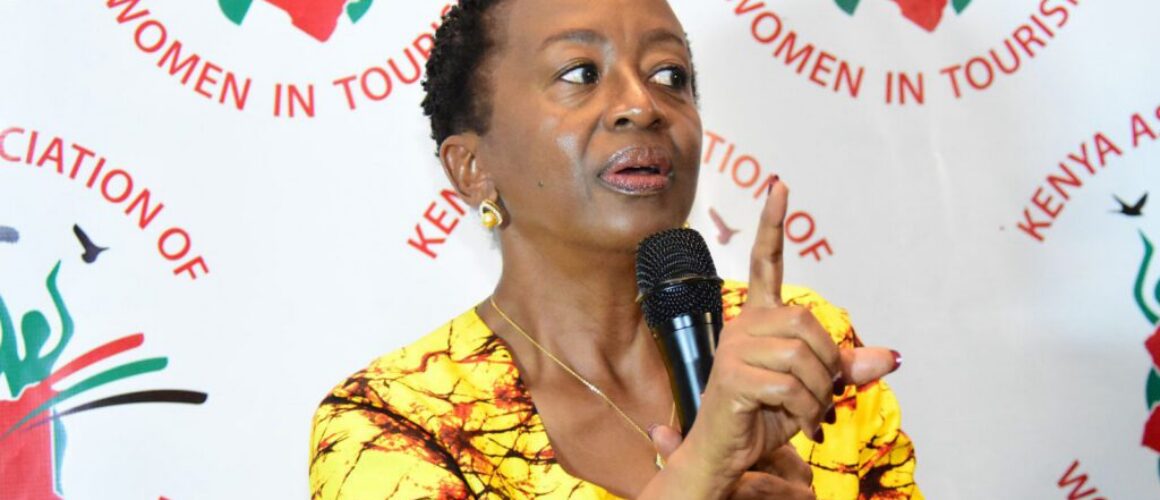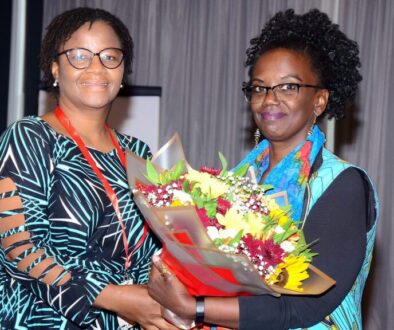On January 30, 2024, the KAWT Inaugural Conference took center stage in Nairobi, marking a milestone event for women in the tourism and hospitality industry across Africa. Organized by the Kenya Association of Women in Tourism (KAWT), the conference brought together a diverse gathering of tourism stakeholders, policymakers, entrepreneurs, academia, and development partners to discuss one of the most pressing conversations in the industry today: the evolving role of women in shaping the future of tourism on the continent.
With the inspiring theme “Revolutionizing Tourism in Africa: The Role Women Play,” the conference served as a platform to elevate women’s voices, celebrate their achievements, and address the systemic challenges they continue to face. The event featured a rich agenda of panel discussions, keynote speeches, and networking opportunities, with a strong emphasis on policy recommendations, sustainability, inclusion, and innovation.
A Historic Gathering for Women in Tourism
The KAWT Inaugural Conference opened with remarks from key government representatives and industry leaders, all of whom acknowledged the significance of the moment. It was not only the first of its kind for the organization but a crucial step toward reimagining Africa’s tourism through the lens of gender equity and empowerment.
The Kenya Association of Women in Tourism, formed to amplify the impact of women in the sector, has long advocated for greater representation, leadership, and capacity-building. The inaugural conference served as a culmination of years of advocacy and a launchpad for future collaboration among women professionals across the continent.
Women in Leadership: Breaking Barriers
A central focus of the conference was the need for more women in leadership roles across tourism and hospitality. Panelists explored how gender-inclusive leadership contributes to more resilient and innovative businesses. Despite women’s strong presence in the tourism workforce, their representation in senior management and policy-making remains disproportionately low.
Discussions highlighted the importance of mentorship programs, leadership training, and supportive workplace policies to close the leadership gap. Speakers emphasized that empowering women to take up decision-making roles is not only a matter of equity but also a strategic advantage in a rapidly changing industry.
Climate Change and Its Disproportionate Impact on Women
Another key topic was the impact of climate change on women working in tourism. With climate events increasingly affecting tourism-dependent economies, the conference underscored the need to develop gender-responsive climate adaptation strategies. Many women working in rural and community-based tourism are often the first to feel the shocks of environmental changes—be it through crop failure, extreme weather events, or water scarcity.
Panelists discussed the necessity of equipping women with the tools, knowledge, and funding to adapt to and mitigate climate-related risks. There was also a call to incorporate women’s voices in national and regional climate policies affecting the tourism sector, to ensure more inclusive and sustainable solutions.
Enhancing Safety and Security for Female Travelers
Safety and security remain critical concerns for female travelers—both domestic and international. The KAWT Inaugural Conference addressed this issue head-on with a panel dedicated to identifying vulnerabilities and proposing actionable solutions. Experts shared global best practices for making travel safer for women, including staff training, secure accommodation standards, and technological interventions such as mobile apps for reporting unsafe conditions.
Speakers urged both public and private sector actors to adopt a gender-sensitive approach in tourism planning and service delivery. Creating safe, welcoming environments for female travelers was seen as a powerful way to increase tourism revenues while enhancing the industry’s global reputation.
Embracing Technology and Accessibility
The digital revolution in tourism has created opportunities—but also challenges—when it comes to accessibility. One of the most thought-provoking sessions at the conference explored how technology can be leveraged to make tourism more inclusive, particularly for persons with disabilities.
Kenya’s tourism sector is beginning to embrace innovations such as virtual tours, digital booking systems, and assistive technologies. However, gaps remain in both infrastructure and digital literacy. The conference emphasized the need for more inclusive design, greater investment in accessible tourism infrastructure, and the inclusion of persons with disabilities in policy dialogue.
Panelists also discussed how women, particularly in rural areas, can benefit from digital tools to market their products, connect with global audiences, and streamline operations in small tourism enterprises. Technology, it was agreed, must be a force for inclusion—rather than a source of further marginalization.
The Power of Collaboration
Throughout the event, a common thread emerged: the power of collaboration. The KAWT Inaugural Conference successfully fostered partnerships between governments, NGOs, private companies, and educational institutions. It became clear that revolutionizing tourism in Africa would require a collective effort—one that recognizes the indispensable role women play in driving the sector forward.
Participants were encouraged to break silos and build ecosystems where women entrepreneurs, tour operators, guides, hoteliers, and community leaders could thrive. There was strong support for regional networks and platforms that would allow African women in tourism to share ideas, access funding, and drive continental change from the grassroots level upward.
Looking Ahead: Policy, Progress, and Purpose
As the KAWT Inaugural Conference came to a close, attendees expressed optimism about the road ahead. The key takeaway was clear: if Africa is to unlock its full tourism potential, women must be placed at the center of the conversation—not as beneficiaries, but as leaders and architects of a more inclusive future.
Concrete policy recommendations emerged from the sessions, including:
-
The establishment of national gender strategies within tourism ministries
-
Funding schemes dedicated to women-led tourism enterprises
-
Enhanced training and mentorship for young women entering the field
-
Stronger enforcement of gender-based safety standards
-
Incentives for accessible and inclusive tourism development
In her closing remarks, the KAWT Chairperson reiterated the organization’s commitment to keeping the momentum going. Plans are already underway for follow-up events, training programs, and an annual Women in Tourism Summit to track progress on the ideas born out of the inaugural conference.
Register Now!
Secure your spot at the KAWT Annual Conference and be part of our transformative event.
Join a powerful network
By subscribing to our newsletter, you’ll stay connected to inspiring stories, impactful projects, and opportunities to get involved. Together, we can empower women and shape the future of tourism.


